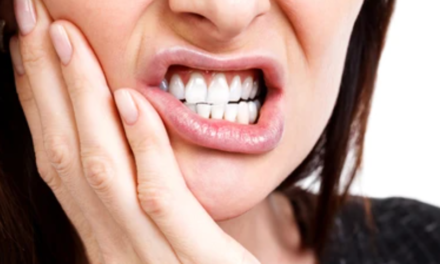Dry mouth at night might seem like a minor annoyance but left untreated, a dry mouth can affect a variety of things, including eating, speaking and your general oral health.
The medical name for ‘dry mouth’, including dry mouth at night, is xerostomia, which is a lack of saliva in the mouth. Saliva is necessary for tooth and gum health and enzymes in saliva aid in digestion. If your mouth is dry at night, your oral health might be affected without your even knowing it.
Symptoms of Dry Mouth at Night
Symptoms of persistent dry mouth at night can include:
- Thick or stringy saliva
- Bad breath
- Changes in your sense of taste
- Issues while wearing dentures
- Difficulty chewing or swallowing
- Sore throat
- Grooved tongue
- Cavities
If there isn’t enough saliva, plaque in the mouth as well as thrush and mouth sores can develop.
Causes of Dry Mouth at Night
- Dry mouth at night can be very common, especially in older adults. This is because saliva changes as you age.
- If you only notice dry mouth at night, the cause might be a nasal obstruction that forces you to breathe through your mouth only.
- Many medications can also cause dry mouth or make the problem worse. The American Academy of Oral Medicine states that over 1,100 prescription and over-the-counter (OTC) medications can potentially cause dry mouth. According to a 2015 review of studies, of the 100 most prescribed medications in the United States, over 80% cause this issue.
Medications with dry mouth as a side effect include:
- Blood pressure drugs
- Antidepressants
- Anti-anxiety drugs
- Antihistamines
- Antacids
- Diuretics
- Bronchodilators, which are used to treat conditions such as asthma and chronic obstructive pulmonary disease (COPD)
Other causes can include:
- Diabetes
- Pregnancy
- Sjögren’s disease
- Chemotherapy
- Radiation
- Nerve damage
- Drug use
Home Remedies for Dry Mouth at Night
- Sip water throughout the day and avoid eating too many salty foods, especially at night.
- Keep a glass of water next to your bed in case you wake up at night and your mouth is dry.
- Monitor your caffeine intake and, if necessary, reduce your caffeine consumption. Caffeine can make dry mouth worse.
- Use a humidifier in your room at night to help keep moisture in the air.
- Try to consciously breathe through your nose, not your mouth.
- Try chewing sugarless gum or sucking on sugarless candy.
- Consider products such as dry mouth toothpaste, artificial saliva, or saliva-stimulating lozenges. A doctor may prescribe them, and they’re available over the counter, too.
- Avoid using mouthwash that contains alcohol, since this can be drying. Opt for alcohol-free mouthwash instead.
- Try to avoid OTC antihistamines or decongestants, which can dry out your mouth.
- Avoid smoking or chewing tobacco.
- Home remedies for dry mouth relief
- Check out our recommendations for the best humidifiers and mouthwash.
Medical Treatments for Dry Mouth at Night
- The medical treatments you take will depend on the underlying cause of the dry mouth, so treatment will vary from person to person.
- If your dry mouth at night is caused by medications, and home remedies aren’t helping, a doctor might want to switch your medications or adjust the dosage.
- A doctor or dentist might prescribe certain medications that help your body produce saliva. In certain cases, they may fit you with fluoride trays to wear at night to help prevent cavities.
- If your dry mouth is due to a nasal problem such as a severely deviated septum that causes you to sleep with your mouth open in order to breathe, the doctor might suggest surgery.
- The septoplasty is a commonly performed procedure that corrects a deviated septum. Symptoms related to nasal obstruction from a deviated septum typically resolve after surgery.
When to See a Doctor About Dry Mouth
If you’re experiencing dry mouth at night, it’s worth discussing with a doctor or dentist, especially if:
- It doesn’t go away with home remedies and the dry mouth treatments from the pharmacy.
- You’re having trouble eating.
- It has a continued impact on your sense of taste.
- You think dry mouth is a side effect of your medications.
- You also have symptoms of a cavity.
- You have bad breath that doesn’t go away.
- You have mouth sores.
- You have dry eyes.
- You experience frequent urination.
Summary
Dry mouth at night can be annoying, uncomfortable, and even harmful to your oral health. It’s important to treat the cause of your dry mouth so you can maintain your oral health.
Many cases of dry mouth can be treated with changes to your lifestyle and medications. Less frequently, dry mouth at night may be a symptom of an underlying condition, which will require specific treatment.





